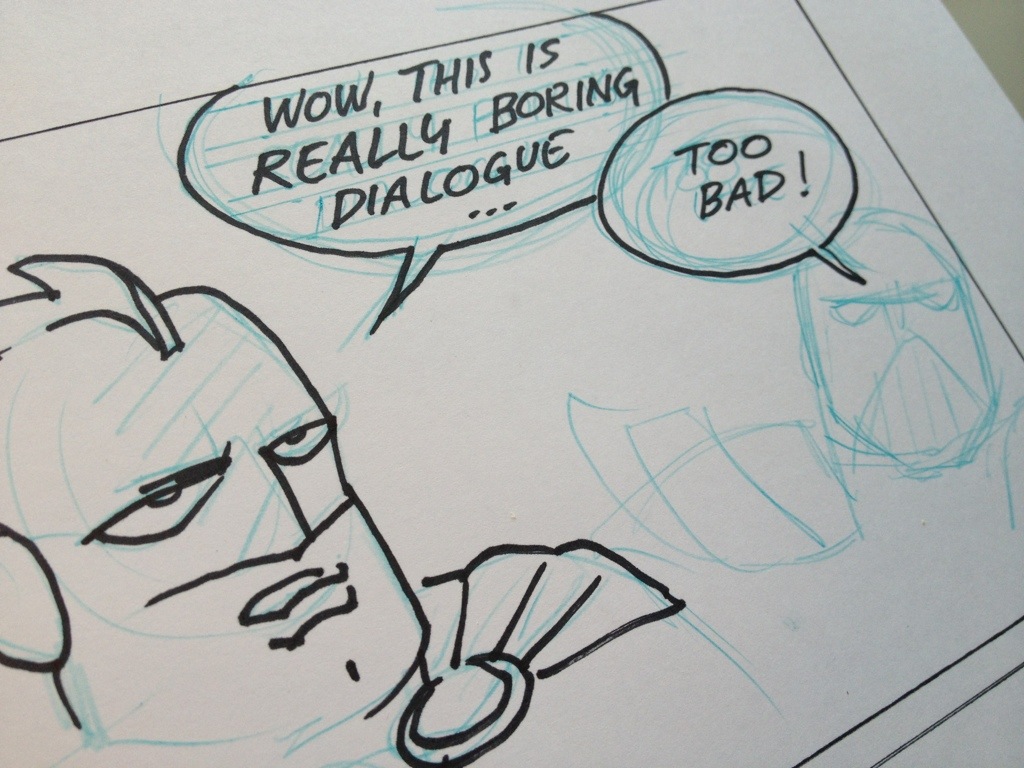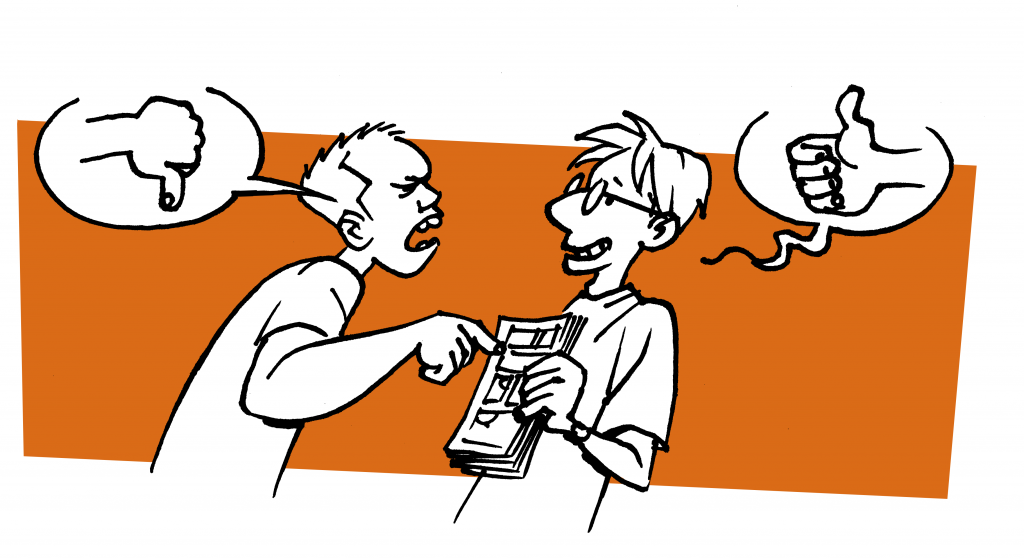Perspective drawing and backgrounds for cartoonists – Teaser for episode 6 of the Comics for Beginners tutorial series! Sign up for full video.
How to Write & Draw Comics
Most of us struggle with finding time to work on our comics. In this episode I go over some productivity tips and mind hacks to help you get more stuff done. Let’s go to work!

Here are 5 ways to write better dialogue:
Why is your character speaking? What is his motivation, the will behind his words. Maybe he wants to show off how much he knows, maybe he wants to insult the other, impress, convince or distract. Maybe he just wants to be left alone. Whatever the will may be, it will affect how the character speaks.
Long, elobarate speeches is for Shakespeare and Bond villains.
When conversations go “question – answer – question – answer” it feels like treading water. Especially mundane questions like “How was your day?” or “Wonder WHO the killer is?” deserve no answer. Try letting the other character answer with a question – their OWN project, their own will. Like “Did you feed the cat?” or “Where’s my coffee cup?”. Skip the banalities, create conflict instead.
The professor and the boxer should NOT sound the same! But for effect, you might twist the klichés once in a while and have the barbarian warrior speak like a philosopher.
Remember to vary the length, the tone and the purpose of the word ballons. Just like the panels should have variations in them, the dialogue should keep the readers on their toes, be changing organically. Not the same three-sentence structure in every ballon.
Hope these tips where helpful! If you haven’t already, be sure to join our newsletter and get more free content and tips on how to write and draw comics.
Writer/artist Palle Schmidt talks about his methods for coming up with story ideas, writing in his underwear, talking to himself and how to solve story problems with the use of balloons! What are YOUR story generation tips? Please share!
 How do you get better at making comics? Well, hard work and pratice, obviously. But getting feedback can be crucial to understanding how your work impacts other people. And that’s what it is all about!
How do you get better at making comics? Well, hard work and pratice, obviously. But getting feedback can be crucial to understanding how your work impacts other people. And that’s what it is all about!Getting the right readers is not easy. You reach out to the person closest to you, you end up getting criticism from you Mom or your girlfriend. Not always a great idea! You need someone you can trust to give their honest opinion. And someone who will not completely destroy your ambitions and self confidence in the process.
Set some ground rules before you have someone read your script or look at sketches. Be specific in what kind of feedback you are looking for. Have them ask questions like “What are you trying to achieve in this panel?” rather than tell you what they like and don’t like. You want their opinion, sure, but you must have some sort of idea what it is YOU want to do. It’s YOUR story, not theirs!
When you ask someone to look at your work and give feedback, be aware that you are asking them to spend their time trying to help you. So the most important thing during their feedback is to listen. You don’t have to agree with everything, but have the courtesy to take notes and ask questions, resisting the urge to defend or explain.
Lastly, you need to understand that whatever feedback you get, is not an assault on you. You are not your story. Don’t take it personally. And getting feedback from the people closest to you, is a surefire way of making it personal. Ask a stranger on the bus before asking your Mom! Ask several different people for feedback, knowing you will get several different answers! People are not confirmation machines. They will tell you stuff you don’t like, some of it helpful, some of it not.
Listen, take notes, think about what they said. And then get back to work.
And remember: you’re the boss.
Related video: Episode 2: How to write your own comic